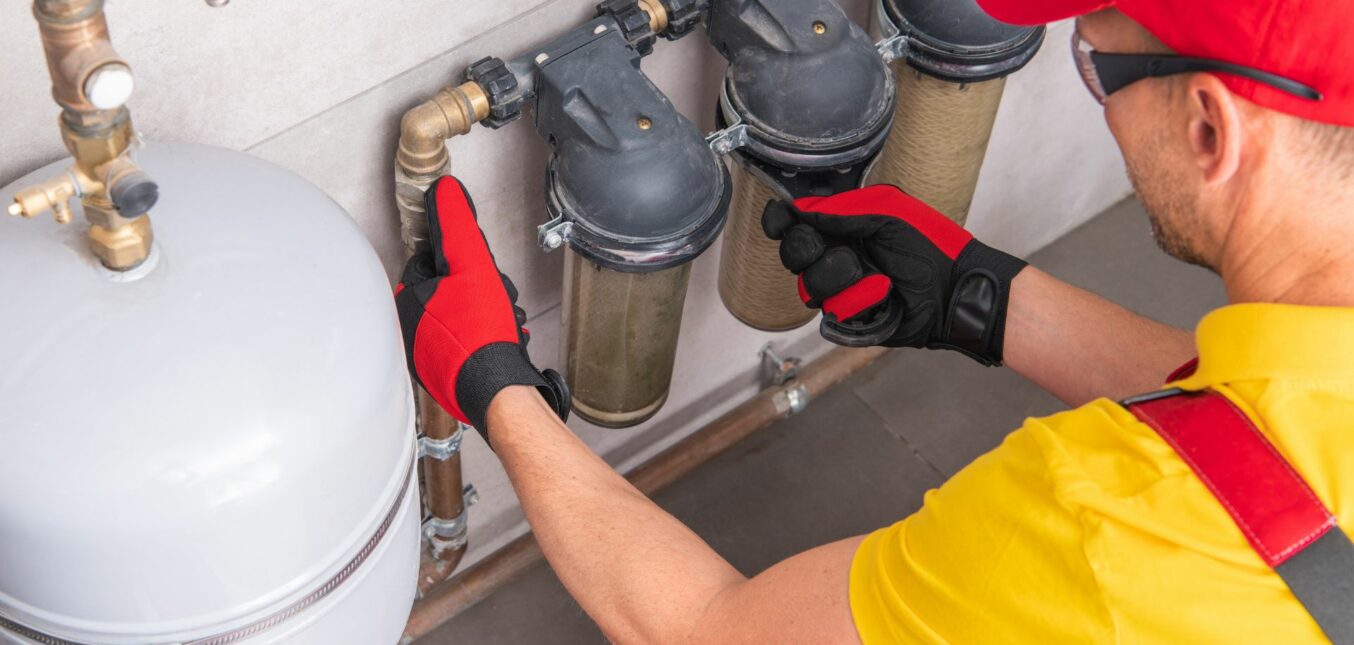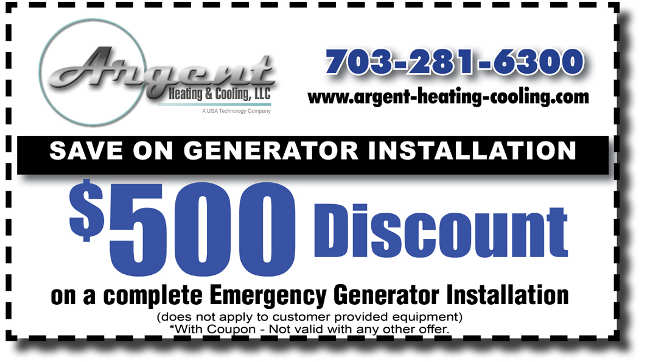Tap water may contain numerous impurities—like sediments, chemicals, minerals, and microorganisms—that affect its taste, quality, and purity. Yet home- and business owners can improve their water’s condition by leveraging the array of filtration options. Finding the ideal solution requires starting with the basics: water filters versus softeners. You can determine which system suits your needs once you grasp the differences between the two. Then, seek expert water filtration systems installation to protect yourself and others from harmful water contaminants.
Argent Heating & Cooling offers such services to Washington, DC, Metro area residents and businesses. We provide a range of high-quality water filters, and our certified technicians have the expertise to install them correctly and efficiently. Further, we provide excellent customer service, including transparent estimates, thorough explanations, and ongoing maintenance support. For more information on water filtration, call us at (703) 281-6300.
Below, we distinguish water filters and water softeners so you can choose the right one for you:
Water Filters
A water filter is a system that removes impurities and contaminants from your water through physical barriers or chemical processes. Many types of wellness water filtration systems are available, including activated carbon filters, reverse osmosis filters, and UV filters. The type you need depends on your water’s source and the impurities you need to remove, though it’s worth noting that most filters can operate without electricity.
Water filters also come in different sizes and shapes, generally categorized as follows:
- Pitcher filters: Although easy to use, pitcher filters are good for little more than removing unpleasant tastes and odors from your water. Nevertheless, they are the most common and affordable option.
- Countertop filters: A step above the pitcher variety, countertop filters provide increased filtration and remove more impurities. However, they also take up more counter space.
- Faucet filters: Faucet filters are easy to install and produce water for handwashing, dishes, and drinking. That said, they only remove a few contaminants like chlorine and lead.
- Under-sink filters: These systems offer advanced filtration for your sink and are the best option for protecting you and others from dangerous impurities.
- Whole-house filters: The most comprehensive option, whole-house filters remove impurities from all the water sources in your house, not just one or two faucets.
Remember that water filters require regular maintenance, such as cleaning and filter cartridge replacement. The frequency you must change the filter depends on the type you have and how much water your property uses.
Water Softeners
Typically installed in line with a house’s primary water source, water softener systems remove minerals like magnesium and calcium (which are known as hard water minerals or ions). Hard water can cause limescale buildup in appliances, make dishes look dirty, leave clothes stiff, and trigger skin irritation.
Softeners come in two main types: salt-based and salt-free. Salt-based water softeners use an ion exchange process to remove minerals from your water. While it works well, this system requires you to add salt to your water, which can increase your sodium intake. Salt-free water softeners use a template-assisted crystallization (TAC) process to change the structure of hard water minerals. This way, they can’t stick to surfaces and cause limescale buildup or other hard-water issues.
Even the best water softeners require maintenance, just as filters do. For instance, you must add salt to your tank to regenerate the resin beads for a salt-based softener to function. Moreover, you must clean the tank and check the unit’s settings regularly regardless of the softener’s type.
Which System Is Best for You?
People often confuse water filters and softeners because they achieve the same ends: removing impurities from your water. However, they have different functions and mechanisms. Property owners who want to remove pollutants like sediment, chemicals, or other contaminants will find a water filter is the best choice. Those experiencing limescale buildup, hard water stains, stiff laundry, or skin irritation will find a water softener is the way to go.
Regarding tangible benefits, water filters improve your water’s taste and smell. Meanwhile, water softeners make your water feel softer and cleaner. You could use a water filter and a water softener if you’re experiencing all the issues mentioned above in your home or business. Or, you might just want to protect yourself and others from all types of water contaminants.
Remember that a filter may be ineffective at purifying hard water, requiring you to invest in a softener before considering a filter. Yet choosing the right treatment system depends on your water conditions and budget. If you’re unsure, contact a water treatment specialist for advice on the type that suits you.
Get Water Filtration Systems Installed in the Washington, DC, Metro Area
Don’t leave the safety of your loved ones, tenants, or customers to chance. Hire Argent Heating & Cooling to install water filtration systems on your Washington, DC, Metro area property. Our team of competent and experienced technicians helps you choose and install the ideal choice to enjoy fresh, safe, and clean water every day. Take the first step towards safer and healthier water and call Argent at (703) 281-6300.



